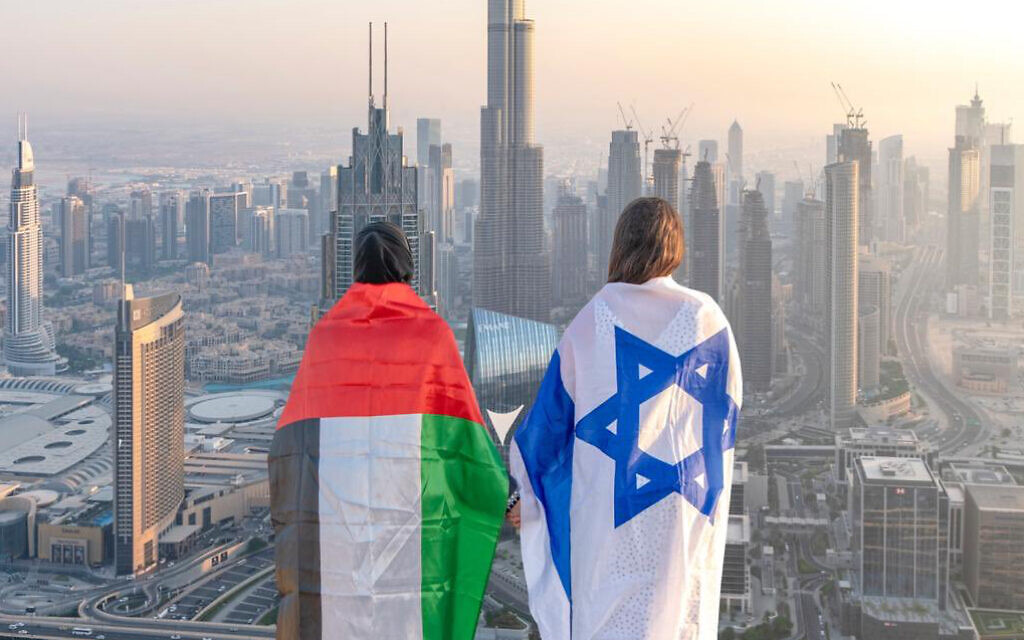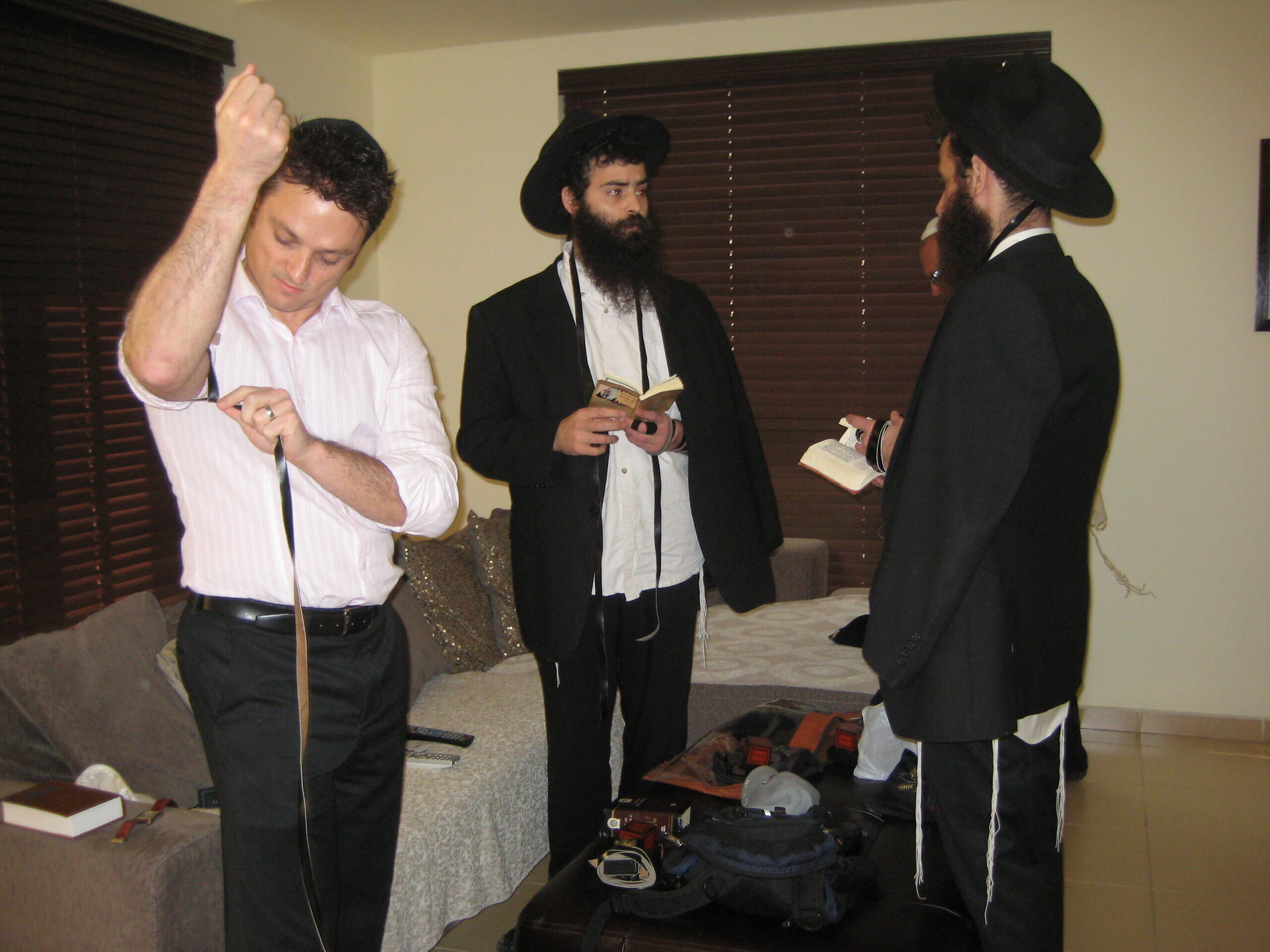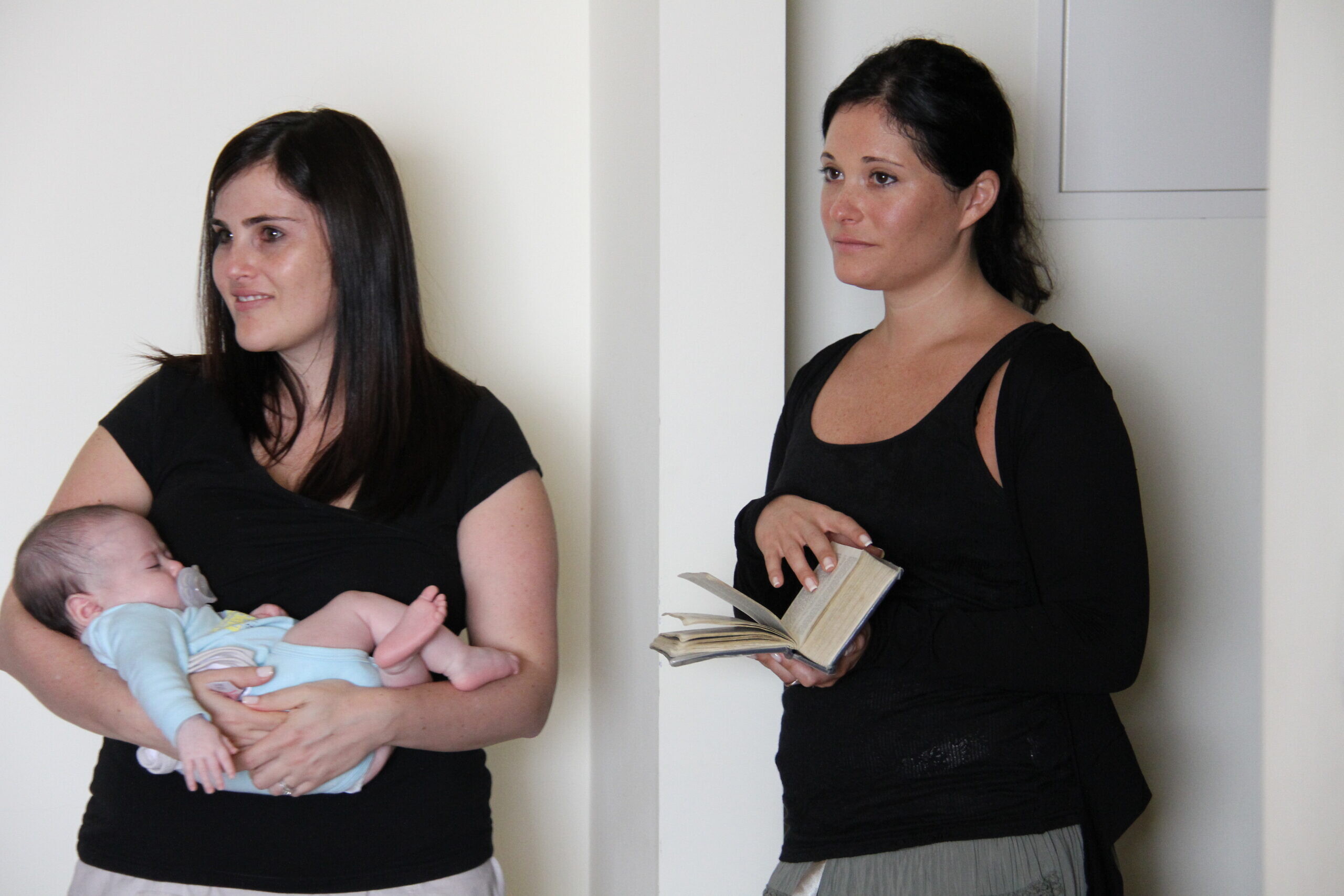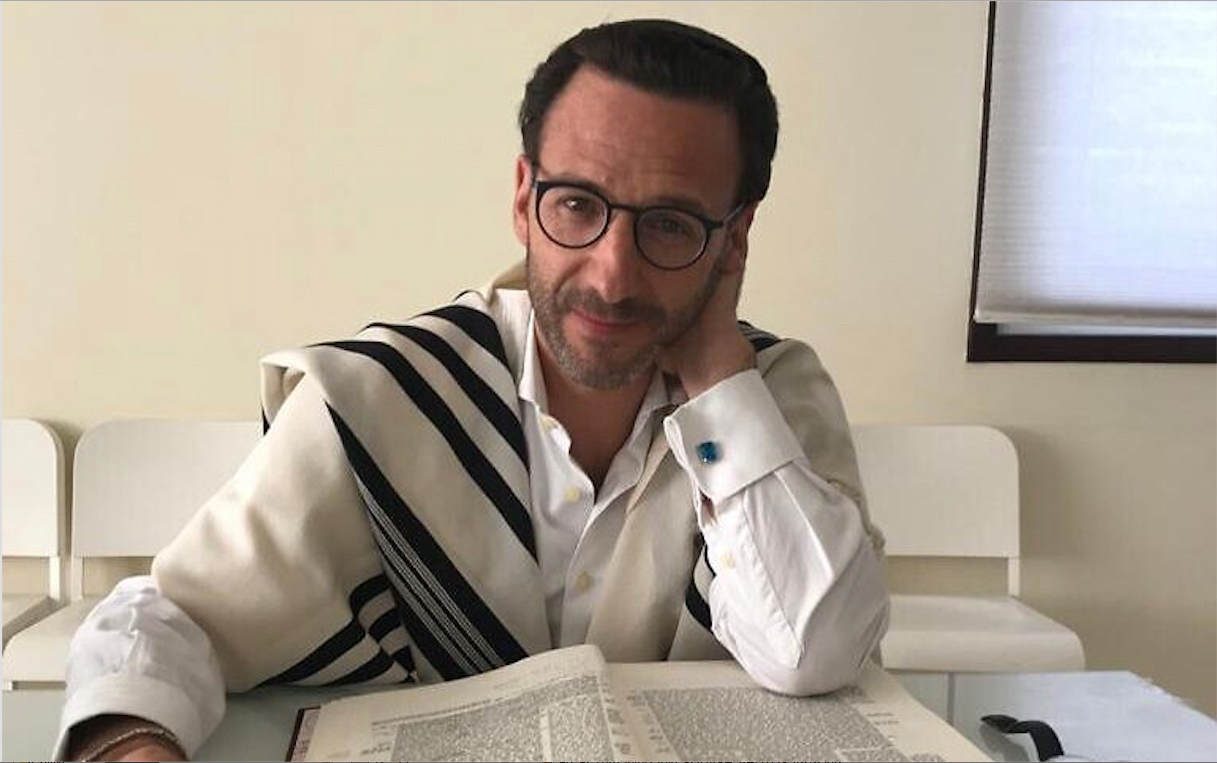The journey of Jewish Dubai
While the small Jewish community in the UAE is now thriving – boosted by the Abraham Accords – the seeds for its success were planted in more challenging times, by four families.

THE EARLY YEARS: 2008-2013
DRAWN to move from Johannesburg to Dubai in 2008 for work, Derek and Bianca Hirschowitz recall being asked by shocked friends, family members, and even their rabbi, “Why are you going there?”
Dubai became their home for the next six years, before they moved permanently to Sydney, following another working stint in Singapore.
And while they wouldn’t swap their time in Dubai for anything, they emphasise just how difficult it was to fulfil an active Jewish life in the UAE then, compared to now.
“It wasn’t all rainbows and roses … yes, things became more open and friendly, but in those early years there was always an undercurrent that made us and other Jewish people we met there feel uneasy – and it was terrible to have to hide our identity,” Bianca said.
Derek explained that in 2008, “I wouldn’t really be walking around Dubai openly discussing my religion because, even though most of the people wouldn’t care about that, as Dubai is such a cultural melting pot, you just didn’t know for sure if there would be any consequences.”
Bianca’s early concerns included having ‘Christian’ listed by her company on her work visa – “which made me feel super uncomfortable”. She also heard of a man who had ‘Jewish’ listed on his visa that consequently lost his job, saw maps without Israel in school textbooks, and went to the Atlantis Hotel for the 2008 New Year’s Eve fireworks display “only for them to cancel it, in solidarity with the Palestinians”.
“From a spiritual perspective, as soon as I got there I kind of regretted our decision, and realised how important having a community is … and it took families that really dedicated themselves to set a foundation,” Bianca said.

Derek explained, “At first, it was just hosting the odd Shabbat dinner among a couple of Jewish people we knew or had met.
“Then bit by bit, through work or just chance encounters, we discovered a kind of Jewish underground of expats – mostly from the UK – but nobody really knew of it, as there was no outlet for them to form a community.”
So Derek and Bianca – together with the Eder, Nates and Arazi families – created and grew one from scratch, hosting larger and more regular Friday night dinners, plus get-togethers for the chagim at each other’s homes.
“The early events were sometimes tense, as we didn’t know if our neighbours would be comfortable with it, and there was no readily available kosher food, so we baked our own challah and made vegetarian and dairy-only meals,” Bianca said.
“Then all of a sudden there were rabbinical communities from around the world – including the rabbi from our old shule in Johannesburg – getting in contact with us about travellers coming to Dubai, and asking if we could get a minyan together for them.
“It was a diverse blend of Sephardi and Ashkenazi traditions, shaped by whoever was hosting, and there were so many beautiful moments,” she said.
“One Pesach when we went to the Nates’ home, they had a seder in English, Hebrew, French and Arabic.
“Another time when we hosted a Rosh Hashanah dinner, the Arazis asked me where’s the seder? We had no idea a Rosh Hashanah seder was a Sephardi tradition until that night. We learned so from each other, and everybody felt like family.”

To add to the mix, two Chabad rabbis – named Shalom and Israel – whom the Eders met during a holiday in Sri Lanka, regularly travelled to Dubai at the community’s request, and in 2012, a mohel from South Africa performed the first official bris in the UAE, for the Eders’ newborn son, Jonah.
Bianca now feels “blessed and rewarded” by her family’s time in Dubai, and would recommend an expat living experience “to absolutely anybody who has an opportunity to take it”.
But she added what’s most important is “bringing a mindset of what you can do for the Jewish community wherever you are, because the blessing is in the giving”.
And the community gave back to them too.
“It rallied behind us during our highest moments – when our son Noah and our daughter Mika were born – and during our lowest moment, when my dad, Tony, passed away in South Africa in 2012, just 10 days after his last visit to Dubai.”
A RAPID RISE: 2013 TO NOW
WHEN the Hirschowitzs left Dubai at the end of 2013, the Eders and Arazis moved back to their home country, England.
Ross Kriel, a keen and dedicated new member who moved permanently to Dubai from South Africa with his family in 2013, then took over the reins.

Ross signed a long-term lease of the large home the Arazis used to live in, transformed it into a shule known as The Villa, and appointed New Yorker, Rabbi Yehuda Sarna, as the community’s non-resident chief rabbi, while forming a sound working relationship with the Emirati authorities.
Derek said, “I think what Ross, and others involved with him, have done there is incredible.
“We, the founding families, basically took it from nothing to a point where there was a Jewish community, and now it has been taken to the next level, where they’ve actually got a shule approved, which is an amazing thing.
“I also think the recent Abraham Accords will be incredible for the Jewish community, because it means you can now be openly Jewish there – and even Israeli – so it’s a whole new world.”
Ross and Rabbi Sarna shed more light on Jewish communal life today in Dubai in a United Israel Appeal Australia webinar earlier this month.
They revealed that the community’s first resident rabbi, Elie Abadi – who is of Sephardi heritage – will commence his duties within weeks.
In a major new milestone, the community is preparing to move into what will be its own community centre in an island suburb of Dubai called Palm Jumeirah, and it will include a new synagogue with a large sanctuary, a mikvah and a beit midrash (study centre).
Shalom, salam, peace. Pick up a copy of this week's AJN, out today. ????️https://www.australianjewishnews.com/shalom-salam-peace/
Posted by The Australian Jewish News on Wednesday, September 2, 2020
And Ross’s wife, Eli, who already operates a kosher catering and takeaway business, is planning to open a kosher restaurant.
“We found a way to structure this [our community] into the ecosystem of the UAE, and we always knew that was going to be possible, given the vision of pluralism of the UAE’s leaders,” Ross said.
“The community is mainly based in Dubai – we are a community in the hundreds, not yet the thousands.
“So we are a small community, but I think being the first new Jewish community in an Arabic Muslim country for centuries is extraordinary in its symbolic impact.
“And when the UAE government’s Abrahamic Family House project – an extraordinary campus to feature a church, a mosque and a synagogue – is finished in 2022 in the centre of the capital Abu Dhabi, it will also be a very attractive city for Jews to be [in].”
Rabbi Sarna said, “It really is a Jewish community of stories and journeys – everybody has their own story.
“I remember the first time I met Ross in Dubai it was Chanukah in 2016 and there were 20 people mingling in his living room, and I think each person was from a different country.”
A main focus of Ross and Rabbi Sarna in recent years has been developing programming and engaging with local Emirati leaders, and leaders in Israel and the Jewish world.
“That’s culminated in, for example, Israel’s Minister for Diaspora Affairs, Omer Yankelevich, joining us via Zoom to meet and congratulate the community and welcome us into the fold of nations – which was a beautiful moment for all of us.”
Ross and Rabbi Sarna both view the Abraham Accords as being a genuinely “warm peace” with Israel that will lead to further growth of Dubai’s Jewish community, and also potentially to hundreds of thousands of Israeli and Jewish tourists and businesspeople visiting the UAE each year.
“The Abraham Accords are a facet, in my view, of a bigger picture of how Jews and Muslims relate to each other, and I think Dubai will be a portal and hub for that relationship, and really be an opportunity to re-engineer it,” Ross said.
“After it was signed, I had some Emirati friends come to my house for Friday night dinner and they brought hydrangeas that were blue and white – they were so excited about it.
“Dubai is an extraordinary place, a trading hub that’s got a very vital entrepreneurial energy, and this is a place where Jews should be … and that’s what Emirati leaders say to me – they say we want you to be here.”
A CULTURE SO ALIGNED WITH OURS
MELBURNIAN Murad Kattan, who lived and worked in Dubai from 2014 to mid-2019, has only good things to say about the city and its people.
While he did not join the Jewish community of the UAE and chose to keep his Jewish faith “quiet”, the CEO of the company that he worked for was Jewish, and he didn’t feel that there was any negativity shown to Jews by locals.
“I loved living there and I made so many Arab friends – the people and the culture are so beautiful in Dubai, and I think so aligned with the Jewish culture … our faiths are similar in so many ways,” Murad said.
“The other thing I loved about Dubai was how safe and clean it is.
“I’d love to live there again in the future – I can’t fault the place.
“I also felt it [the Abraham Accords]was always going to be possible, because I think the majority of people do want peace.”
Get The AJN Newsletter by email and never miss our top stories Free Sign Up

comments